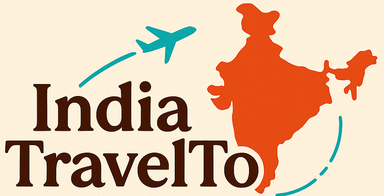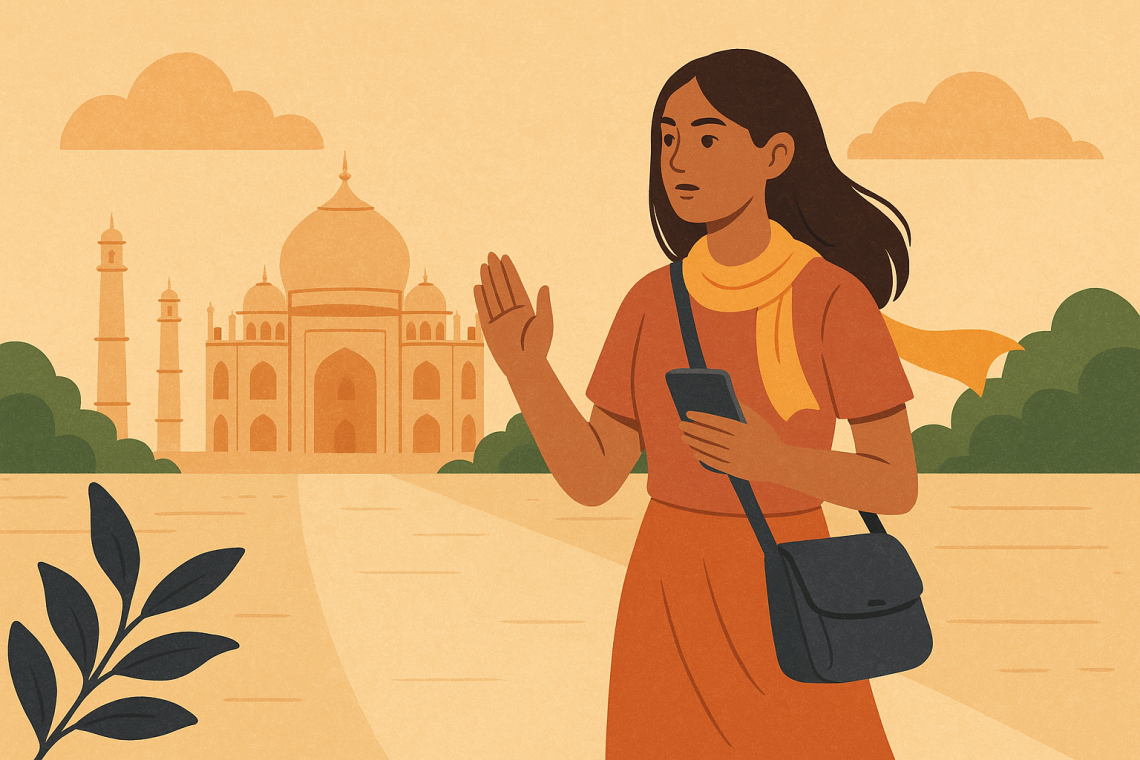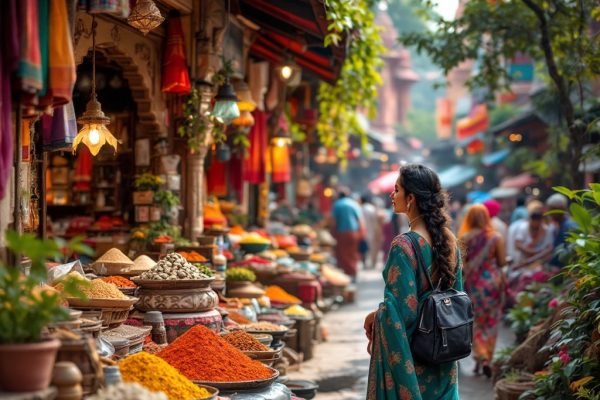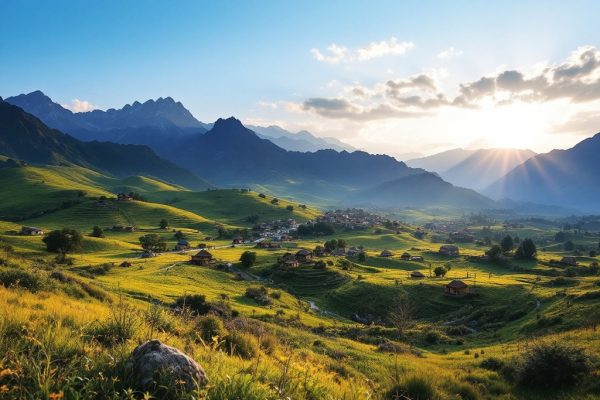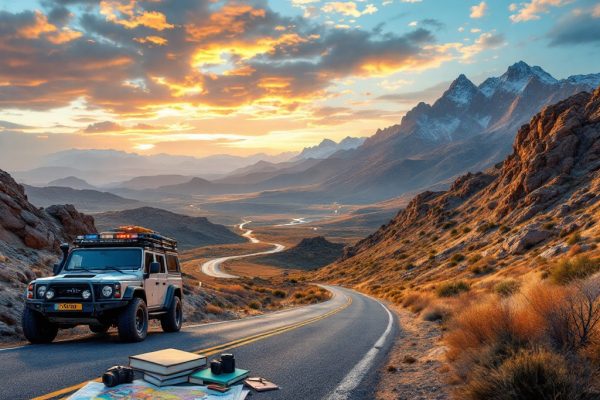Is It Safe to Travel to India as a Woman? Expert Safety Tips and Precautions
Planning a trip to India? Concerned about safety as a female traveler? While media reports can be daunting, India offers incredible experiences for women who take smart precautions. This guide provides expert safety tips, from dressing respectfully and avoiding isolated areas to utilizing women-only transport and accommodation options. Discover how to research safe destinations, utilize emergency resources like the national women’s helpline (1091), and confidently navigate India’s rich culture. Empower yourself with the knowledge to have a safe and unforgettable journey. Read on to plan your adventure!
Important information
- India is generally safe for women travelers, but vigilance is key. Plan ahead, research safe destinations, and understand local customs.
- Dress modestly, respect local traditions, and avoid isolated areas, especially at night. Use reputable transportation like pre-booked taxis or ride-hailing apps.
- Share your itinerary with a trusted contact and keep emergency numbers handy, including the national women’s helpline (1091).
- Consider traveling in a group or connecting with other solo female travelers online for added support and advice. Trust your instincts and be assertive in uncomfortable situations.
- Rajasthan, Kerala, Sikkim, and Himachal Pradesh are often recommended as safe and welcoming states for female travelers.
Is It Safe to Travel to India as a Woman?
While media reports can sometimes overstate the dangers, India is generally safe for female travelers. However, vigilance and awareness are crucial for a positive and safe trip. By taking standard precautions, like those you’d employ anywhere, women can enjoy their Indian adventure incident-free. So be prepared and embrace your journey!
Understanding Women’s Safety in India
Safety for Women Traveling in IndiaPrioritizing safety is crucial for women traveling in India. While crimes against female tourists are rare, vigilance is essential. Planning ahead, researching safe destinations, and understanding local customs are crucial steps for a secure trip. Group travel can enhance safety, but solo trips are also feasible with proper precautions. Trust your instincts; if a situation feels risky, remove yourself. Dressing modestly respects local traditions and can contribute to a positive experience. Avoid isolated areas, particularly at night, and opt for reputable transportation options like taxi apps or pre-booked cars. Keep important contacts readily available, including emergency services and local authorities. Share your travel plans with a trusted friend or family member back home.
Plan ahead and research safe destinations. Understanding local customs is also a crucial step for a secure trip.
Consider group travel for enhanced safety. Solo trips are feasible with proper precautions and awareness.
Trust your instincts. If a situation feels risky, leave immediately.
Dress modestly to respect local traditions. This can contribute to a positive and respectful travel experience.
Avoid isolated areas, particularly at night. Opt for reputable transportation options like taxi apps or pre-booked cars.
Keep important contacts readily available. This includes emergency services and local authorities.
Share your travel plans with a trusted friend or family member. This allows someone to know your whereabouts and check in on you.
Media Reports vs. Actual Safety
While media hype can exaggerate risks associated with women traveling in India, many women share nuanced and positive travel experiences. To gain a balanced perspective, explore diverse travel blogs and forums for firsthand accounts.
Common Concerns for Female Travelers
Safety is a common concern for women travelers. From navigating public transport to finding secure lodging, various factors can contribute to this anxiety, especially cultural differences. Unwanted attention, such as staring or groping, and even harassment, are potential threats. However, by taking sensible precautions, women can significantly minimize these risks and enjoy a safer, more worry-free trip.
Tips for Staying Safe While Traveling:
- Dress modestly, especially when visiting religious sites or conservative areas.
- Avoid walking alone in isolated areas, particularly at night.
- Choose safe and reliable transportation options, such as reputable taxi services or ride-sharing apps.
Additional Safety Measures:
- Opt for accommodations in safe neighborhoods with good reviews.
- Keep important documents and valuables secure, preferably in a hidden money belt.
- Share your itinerary with a trusted friend or family member and maintain regular contact.
By traveling smart, women can confidently explore the world and focus on creating memorable experiences.
Expert Safety Tips for Women Traveling in India
Dress respectfully, keeping local customs in mind. Modest attire can often help avoid unwanted attention. Loose, long clothing is usually a good option.
Avoid solo trips at night, especially on public transport. If late-night travel is unavoidable, pre-book a taxi or a reliable ride-sharing service and inform someone of your plans.
Traveling in a group enhances safety. If you prefer exploring independently, stick to well-lit and populated areas. Always share your itinerary with family or friends.
Trust your instincts. If a situation feels unsafe, remove yourself. Be assertive and don’t hesitate to seek assistance. Learning a few basic Hindi phrases can also be beneficial.
Dress Appropriately: Cultural Customs and Modesty
When traveling in India, modest attire is recommended. Loose, comfortable clothing that covers your shoulders and legs is ideal, such as a salwar kameez. Avoid tight or revealing clothing, particularly in rural areas and religious sites. While Goa’s dress code is more relaxed, dressing respectfully is still wise for both positive interactions and personal safety. It’s also advisable to avoid flashy jewelry to minimize unwanted attention.
Avoid Night Travel: Arriving and Using Public Transport
Plan your arrival before nightfall to enhance your safety and familiarity with the surroundings.
Secure your accommodation and transportation in advance for a seamless and stress-free arrival.
If using public transport at night is unavoidable, choose pre-paid taxis from established and reliable companies.
Traveling with a trusted companion can significantly bolster your safety and peace of mind.
For women traveling alone at night, buses and trains may pose heightened risks. If possible, seek out seating near other women or close to the driver for added security.
Travel with a Group: Benefits and Considerations
Group travel enhances safety by reducing the risk of theft or harassment. It offers support in unfamiliar environments should unexpected issues arise.
Successful group trips demand teamwork, requiring coordinated planning and a willingness to compromise on itineraries and pace.
Trust Your Instincts: Importance of Being Assertive
Trust your instincts and remove yourself from uncomfortable situations. Set clear boundaries and decline requests without hesitation. This promotes both safety and respect, protecting your well-being.
Precautions for Solo Female Travelers in India
Thorough destination research is essential, focusing on safe neighborhoods and local customs. Learning basic Hindi phrases demonstrates respect and enhances interactions. Connecting with other solo female travelers in India through Facebook groups offers valuable insights and advice from experienced individuals.
- Research safe neighborhoods and local customs.
- Learn basic Hindi phrases.
- Connect with other solo female travelers in India via Facebook groups.
Pre-booking transportation, particularly for late or early travel times, is crucial. Reputable taxi services or ride-hailing apps are recommended, while unmarked taxis should be avoided. For longer trips, government-run buses or trains, especially sleeper class for overnight journeys, provide added safety and comfort.
- Pre-book transportation, especially for late or early travel.
- Use reputable taxi services or ride-hailing apps.
- Avoid unmarked taxis.
- Consider government-run buses or trains (sleeper class for overnight trips).
A personal safety alarm can be a deterrent, and pepper spray is legal, though its effectiveness may vary. Tasers are generally not advised due to legal restrictions. Prioritizing situational awareness and de-escalation techniques are paramount, rather than relying solely on self-defense tools.
- Carry a personal safety alarm.
- Pepper spray is legal (effectiveness may vary).
- Avoid tasers due to legal restrictions.
- Prioritize situational awareness and de-escalation techniques.
Store important numbers in your phone, including local police, your embassy or consulate, and your accommodation. India’s national women’s helpline is 1091. Familiarize yourself with local emergency procedures and share your itinerary with a trusted contact back home.
- Save local police, embassy/consulate, and accommodation numbers in your phone.
- India’s national women’s helpline: 1091.
- Learn local emergency procedures.
- Share your itinerary with a trusted contact.
Researching Destinations: Safe Destinations and Local Customs
Research empowers women travelers to understand local customs and identify safer areas. This knowledge is crucial for choosing appropriate attire, informing behavior, and guiding transportation decisions, ultimately minimizing risks. Understanding cultural norms and regional safety concerns is vital for a positive travel experience.
Transportation Strategies: Vehicle Safety and Public Transport
Plan your transportation in advance to ensure a safe trip.
Pre-book your transportation if possible. If pre-booking isn’t an option, use established and reliable services.
Avoid traveling alone on public transport late at night. If you must travel late at night, sit near other people.
When taking a taxi, choose a seat near the door for a quick exit.
Keep your belongings close and be vigilant about your surroundings.
If available, consider using women-only train carriages.
Carrying Self-Defense Tools: Personal Alarms, Pepper Spray, and Tasers
Personal alarms are effective deterrents that can frighten off potential threats. Consider carrying pepper spray, but be mindful of India’s varying local laws regarding its use. Tasers are generally restricted and not advised for travelers.
Emergency Preparedness: Save Emergency Numbers and Use Women Helpline
In case of an emergency, dial 100 for police, 102 for ambulance, or 112 for the national emergency line. You should also save the national women’s helpline, 1091. Keep your accommodation’s contact details readily available. If you are with a tour group, your tour leader is your first point of contact for assistance.
Safety Measures and Security Tips
Safe accommodations are essential for a smooth trip. Seek out reputable hotels or guesthouses with robust security measures like CCTV cameras and secure locks. Share your itinerary with a trusted contact back home and the hotel staff for added safety. Protect your belongings by using secure bags and keeping valuables such as passports, money, and electronics out of sight. Be mindful of potential scams and avoid displaying expensive jewelry or gadgets.Protecting your data is equally important. Employ strong passwords and exercise caution when using public Wi-Fi. Avoid using public Wi-Fi for sensitive transactions. A VPN can enhance your online security.Understanding local customs is also beneficial. The Sanskrit phrase “Atithi Devo Bhava,” meaning “the guest is God,” reflects Indian hospitality. However, maintaining caution is still advisable. Respecting local customs, particularly regarding dress and interactions, can help avoid unwanted attention. Learning basic Hindi phrases can further enhance your experience.
Secure Accommodation: Hotel Safety and Trustworthy Places
Prioritize hotels with robust security measures, such as 24/7 reception desks, CCTV surveillance, and ample lighting.
Verify a hotel’s safety reputation by checking online reviews.
In your room, confirm both the phone and door locks function properly.
Alert hotel staff to any security concerns.
While it’s wise to keep your hotel card accessible, avoid publicly sharing your travel itinerary.
Report any suspicious behavior immediately.
Protect Personal Belongings: Safeguarding Data and Gadgets
When traveling overnight, secure your luggage with a cable lock, especially on buses and trains.
For added security, lock your bag’s zippers together.
Slash-proof handles offer further protection against theft.
Consider bags with RFID-blocking pockets to prevent electronic theft.
Always keep your valuables close and secure.
Understanding Local Advice: Atithi Devo Bhava and Cultural Respect
In India, the Sanskrit phrase “Atithi Devo Bhava,” meaning “the guest is equivalent to God,” reflects a profound cultural respect for hospitality. Honoring this principle, along with local customs, enhances and safeguards your travel experience. For instance, dressing modestly and respecting traditions demonstrates cultural sensitivity. Seeking advice from reliable sources, such as hotel staff or tourist information centers, further contributes to a positive and enriching journey. This respectful approach fosters understanding and helps navigate unfamiliar situations.
Addressing Gender Inequality and Risks
Traveling in India as a woman can present safety challenges, including unwanted attention, groping, or even harassment. However, vigilance and practical precautions significantly mitigate these risks. Avoid isolated locations, particularly at night, and never walk alone after dark. Instead, opt for reliable transportation such as reputable taxi or ride-hailing services. Above all, stay aware of your surroundings. Heightened vigilance can make all the difference.
Common Threats: Staring, Groping, and Sexual Harassment
Female travelers in India should be mindful of potential safety concerns. These may include unwanted attention, inappropriate touching, and sexual harassment. While less common than petty theft, such experiences necessitate vigilance and assertiveness. Report any harassment to local authorities or utilize available women’s helplines. Prioritize your safety.
Travel Awareness: Avoid Risky Situations and Use Common Sense
Prioritize your safety while traveling in India. Trust your instincts and avoid potentially dangerous situations. If a situation feels unsafe, remove yourself from it. Don’t hesitate to seek assistance if needed. Maintain awareness of your surroundings and keep emergency contact information readily available. Opt for well-lit and populated areas, especially at night.
Trust your instincts. If a situation feels unsafe, remove yourself from it.
Don’t hesitate to seek assistance if needed.
Maintain awareness of your surroundings.
Keep emergency contact information readily available.
Opt for well-lit and populated areas, especially at night.
India’s Tourist Infrastructure for Safe Travel
India offers a robust infrastructure designed for safe travel, especially for solo female travelers. A range of facilities caters to their specific needs:
- women-only train compartments and designated metro areas,
- dedicated women’s waiting rooms in bus and railway stations,
- women-only floors or dormitories in many hotels and hostels for enhanced safety and privacy,
- women-only tours with guided itineraries and unique experiences curated by specialized tour operators.
India prioritizes tourist safety with several initiatives:
- tourist police units deployed in popular destinations to offer assistance and address safety concerns,
- bolstered security measures like CCTV surveillance in public areas and increased police patrols in many cities,
- women’s helplines and dedicated police stations operated by several states to provide immediate assistance in emergencies and handle cases of harassment.
Several Indian states are renowned for their safety and welcoming atmosphere towards female travelers:
- Rajasthan, with its rich culture and historical sites, is a frequent recommendation.
- Kerala, known for its serene backwaters and scenic beauty, is another popular destination.
- Sikkim, nestled in the Himalayas, offers stunning mountain vistas and a reputation for safety.
- Himachal Pradesh attracts visitors with its picturesque hill stations and tranquil environment.
Solid Infrastructure: Facilities for Solo Female Travelers
India welcomes solo female adventurers. Several resources ensure their safety, including pre-booked taxis and reputable accommodations. Easily accessible local helplines and taxi apps provide safe and reliable transportation. For added security, women traveling alone can connect with local authorities or their accommodations for assistance. India offers the tools for a secure and unforgettable experience.
Hassle-Free States: Recommended Safe Regions
Rajasthan and Sikkim are safe destinations due to their strong tourist infrastructure and low crime rates.
Kerala’s welcoming atmosphere, fostered by its high literacy rate and progressive social environment, ensures visitor safety.
Himachal Pradesh offers the tranquility and safety of its peaceful hill stations.
These states are ideal for travelers who prioritize safety and comfort.
Trustworthy Local Police and Security Measures
India is committed to enhancing women’s safety, especially for those traveling. A crucial step involves setting up specialized women’s police stations, which serve as safe spaces for reporting incidents. Dedicated helplines provide immediate support. Increased police presence in tourist areas acts as a deterrent. These combined initiatives aim to cultivate a secure and welcoming environment for women exploring India.
